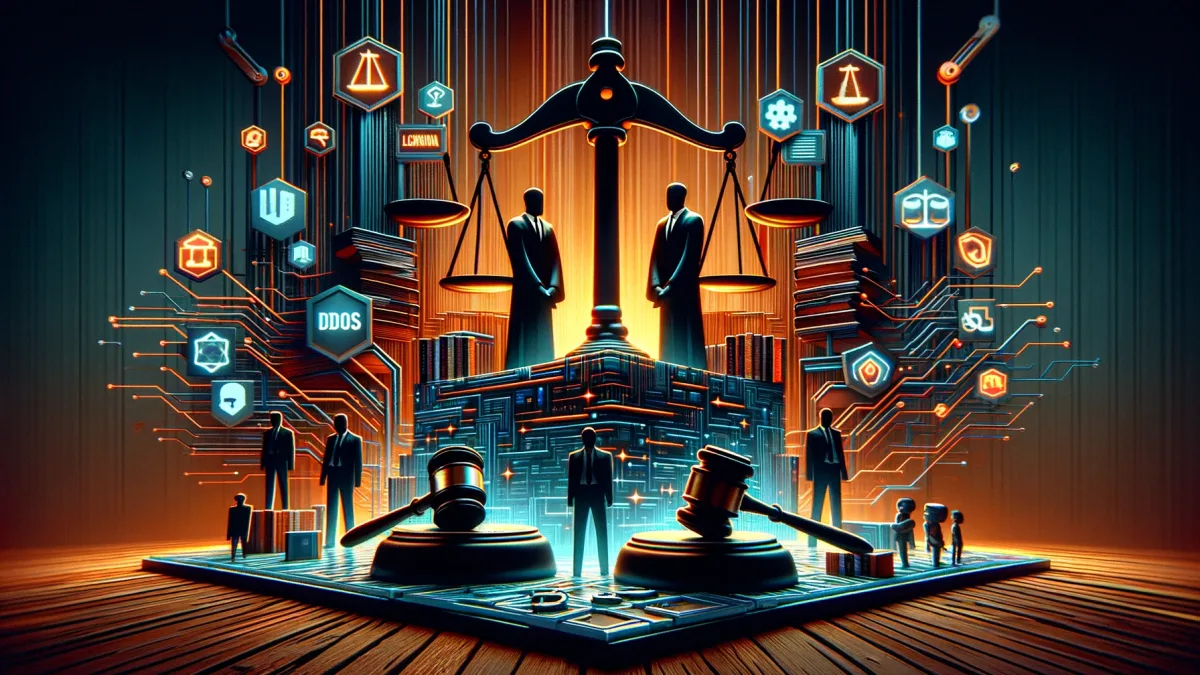Hey there, digital navigators and netizens! Have you ever been in the heat of an online battle, only to suddenly find yourself staring at a disconnected screen? Or perhaps you’ve been tempted to “return the favor” to someone who’s been less than pleasant online? Before you consider pulling the digital plug on someone, let’s dive into whether booting people offline is just naughty or outright illegal.
Booting Defined: A Quick Tech Recap
First off, “booting” in our context means intentionally knocking someone offline through various means. This can include Distributed Denial of Service (DDoS) attacks, where multiple systems flood a user’s network or server with traffic to overwhelm their internet connection, causing disconnection or significant lag.
The Legal Lens: Cyberattacks Under Scrutiny
Under U.S. law, booting someone offline is considered a form of cyberattack. It disrupts the intended use of internet services, potentially causing not just inconvenience but also financial loss, data corruption, and breaches of privacy. Such actions are not taken lightly in the eyes of the law.
The Computer Fraud and Abuse Act (CFAA)
The primary piece of legislation that enters our discussion is the Computer Fraud and Abuse Act (CFAA). This act makes it illegal to intentionally access a computer without authorization or in a way that exceeds authorized access. Since booting involves unauthorized access to disrupt someone’s internet connection, it squarely falls under activities that the CFAA aims to penalize.
DDoS Attacks: Not Just a Prank
DDoS attacks, a common method for booting, are explicitly illegal under several provisions of U.S. law, including the CFAA. These attacks are seen as malicious attempts to disrupt legitimate internet activity and can be prosecuted as criminal offenses. The severity of the offense can lead to significant penalties, including fines and imprisonment.
State Laws and Personal Liability
In addition to federal laws, many states have their own legislation that can apply to booting activities. These laws may cover unauthorized computer access, cyber harassment, or electronic vandalism. Victims of booting can also pursue civil action for damages caused by the disruption, including lost income, repair costs, and other related expenses.
When Booting Crosses into Harassment
Beyond the disruption of services, booting can escalate into cyberbullying or harassment, especially if targeted repeatedly at an individual. This not only compounds the legal repercussions but also brings into play laws designed to protect individuals from online harassment.
The Ethical Dimension: Digital Citizenship
Legality aside, it’s crucial to consider the ethical implications of booting. The internet is a shared resource, a digital ecosystem where respect and responsibility should guide behavior. Booting people offline undermines the principles of digital citizenship, promoting a toxic online environment.
Prevention and Protection: Safeguarding Against Booting
For users on the receiving end of booting attempts, there are measures to enhance online security, such as using VPNs to mask IP addresses, securing networks against unauthorized access, and practicing good digital hygiene. Awareness and education about the risks and legal implications of booting can also deter potential offenders.
Navigating the Legal Consequences
If you’ve been accused of booting or are a victim, consulting with a legal professional specializing in cyber law is critical. They can provide advice tailored to the specifics of your situation and help navigate the complex landscape of digital law.
Final Thoughts: Connectivity Over Chaos
The digital realm thrives on connectivity, not chaos. While the temptation to “boot” someone as a form of digital comeuppance might be strong, the legal (and ethical) ramifications are serious. Understanding the law’s view on booting people offline is crucial in fostering a healthier, more respectful online world.
Remember, in the vast digital ocean, it’s our collective actions that shape the currents. Let’s choose to steer towards respect, understanding, and legal compliance, ensuring the internet remains a space for positive engagement and growth.









Leave a Reply